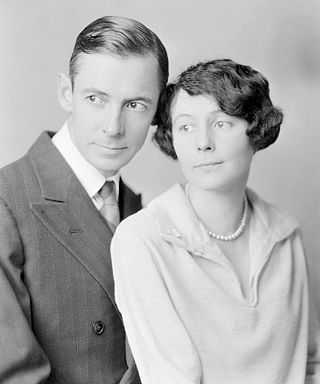Related Research Articles

The Fifteenth Amendment to the United States Constitution prohibits the federal government and each state from denying or abridging a citizen's right to vote "on account of race, color, or previous condition of servitude." It was ratified on February 3, 1870, as the third and last of the Reconstruction Amendments.

The Nineteenth Amendment to the United States Constitution prohibits the United States and its states from denying the right to vote to citizens of the United States on the basis of sex, in effect recognizing the right of women to vote. The amendment was the culmination of a decades-long movement for women's suffrage in the United States, at both the state and national levels, and was part of the worldwide movement towards women's suffrage and part of the wider women's rights movement. The first women's suffrage amendment was introduced in Congress in 1878. However, a suffrage amendment did not pass the House of Representatives until May 21, 1919, which was quickly followed by the Senate, on June 4, 1919. It was then submitted to the states for ratification, achieving the requisite 36 ratifications to secure adoption, and thereby go into effect, on August 18, 1920. The Nineteenth Amendment's adoption was certified on August 26, 1920.

Dame Millicent Garrett Fawcett was an English politician, writer and activist. She campaigned for women's suffrage by legal change and in 1897–1919 led Britain's largest women's rights association, the National Union of Women's Suffrage Societies (NUWSS), explaining, "I cannot say I became a suffragist. I always was one, from the time I was old enough to think at all about the principles of Representative Government." She tried to broaden women's chances of higher education, as a governor of Bedford College, London and co-founding Newnham College, Cambridge in 1875. In 2018, a century after the Representation of the People Act, she was the first woman honoured by a statue in Parliament Square.

Suffrage, political franchise, or simply franchise is the right to vote in public, political elections and referendums. In some languages, and occasionally in English, the right to vote is called active suffrage, as distinct from passive suffrage, which is the right to stand for election. The combination of active and passive suffrage is sometimes called full suffrage.
Women's suffrage is the right of women to vote in elections. In the beginning of the 18th century, some people sought to change voting laws to allow women to vote. Liberal political parties would go on to grant women the right to vote, increasing the number of those parties' potential constituencies. National and international organizations formed to coordinate efforts towards women voting, especially the International Woman Suffrage Alliance.
Universal suffrage ensures the right to vote for as many people who are bound by a government's laws as possible, as supported by the "one person, one vote" principle. For many, the term universal suffrage assumes the exclusion of youth and non-citizens, while some insist that much more inclusion is needed before suffrage can be called universal. Democratic theorists, especially those hoping to achieve more universal suffrage, support presumptive inclusion, where the legal system would protect the voting rights of all subjects unless the government can clearly prove that disenfranchisement is necessary.

Edwin DuBose Heyward was an American author best known for his 1925 novel Porgy. He and his wife Dorothy, a playwright, adapted it as a 1927 play of the same name. The couple worked with composer George Gershwin to adapt the work as the 1935 opera Porgy and Bess. It was later adapted as a 1959 film of the same name.

The National Woman's Party (NWP) was an American women's political organization formed in 1916 to fight for women's suffrage. After achieving this goal with the 1920 adoption of the Nineteenth Amendment to the United States Constitution, the NWP advocated for other issues including the Equal Rights Amendment. The most prominent leader of the National Woman's Party was Alice Paul, and its most notable event was the 1917–1919 Silent Sentinels vigil outside the gates of the White House.

Helena Maria Lucy Swanwick CH was a British feminist and pacifist. Her autobiography, I Have Been Young (1935), gives a remarkable account of the non-militant women's suffrage campaign in the UK and of anti-war campaigning during the First World War, together with philosophical discussions of non-violence.

Women's suffrage – the right of women to vote – has been achieved at various times in countries throughout the world. In many nations, women's suffrage was granted before universal suffrage, in which cases women and men from certain socioeconomic classes or races were still unable to vote. Some countries granted suffrage to both sexes at the same time. This timeline lists years when women's suffrage was enacted. Some countries are listed more than once, as the right was extended to more women according to age, land ownership, etc. In many cases, the first voting took place in a subsequent year.

Women's legal right to vote was established in the United States over the course of more than half a century, first in various states and localities, sometimes on a limited basis, and then nationally in 1920 with the passing of the 19th Amendment.

Doris Stevens was an American suffragist, woman's legal rights advocate and author. She was the first female member of the American Institute of International Law and first chair of the Inter-American Commission of Women.

David Torrence was a Scottish film actor. He appeared in more than 100 films from 1913 to 1939. He has a star on the Hollywood Walk of Fame. He was the brother of actor Ernest Torrence. He was born in Edinburgh, Scotland and died in Los Angeles.
Virginia Women in History was an annual program sponsored by the Library of Virginia that honored Virginia women, living and dead, for their contributions to their community, region, state, and nation. The program began in 2000 under the aegis of the Virginia Foundation for Women and Delta Kappa Gamma Society International; from 2006 to 2020 it was administered by the Library of Virginia. In 2021, it was replaced by the Strong Men and Women in Virginia History program.
This timeline highlights milestones in women's suffrage in the United States, particularly the right of women to vote in elections at federal and state levels.

Women's suffrage was established in the United States on a full or partial basis by various towns, counties, states and territories during the latter decades of the 19th century and early part of the 20th century. As women received the right to vote in some places, they began running for public office and gaining positions as school board members, county clerks, state legislators, judges, and, in the case of Jeannette Rankin, as a member of Congress.

Women's suffrage in Virginia was granted in 1920, with the ratification of the Nineteenth Amendment. The General Assembly, Virginia's governing legislative body, did not ratify the Nineteenth Amendment until 1952. The argument for women's suffrage in Virginia began in 1870, but it did not gain traction until 1909 with the founding of the Equal Suffrage League of Virginia. Between 1912 and 1916, Virginia's suffragists would bring the issue of women's voting rights to the floor of the General Assembly three times, petitioning for an amendment to the state constitution giving women the right to vote; they were defeated each time. During this period, the Equal Suffrage League of Virginia and its fellow Virginia suffragists fought against a strong anti-suffragist movement that tapped into conservative, post-Civil War values on the role of women, as well as racial fears. After achieving suffrage in August 1920, over 13,000 women registered within one month to vote for the first time in the 1920 United States presidential election.
Anna Whitehead Bodeker was an American suffragist who led the earliest attempt to organize for women's suffrage in the state of Virginia. Bodeker brought national leaders of the women's suffrage movement to Richmond, Virginia to speak; published newspaper articles to draw attention and supporters to the cause; and helped found the Virginia State Woman Suffrage Association in 1870, the first suffrage association in the state.
References
- ↑ (6 June 1914). Literary Notes by Our Book Editor, Quebec Daily Telegraph
- ↑ (13 December 1913). An Anti-Suffrage Extremist, St. Joseph News-Press
- ↑ Virginia: A Guide to the Old Dominion, p. 249 (1940)
- ↑ Bond, Lula Sams and Laura Sams Sanders. The Sams Family of South Carolina (Continued)., The South Carolina Historical Magazine, Vol. 64, No. 2 (Apr., 1963), pp. 105-113 ("Conway Whittle Sams, born August 25, 1864, McPhersonville, South Carolina, died May 11, 1935 ...")